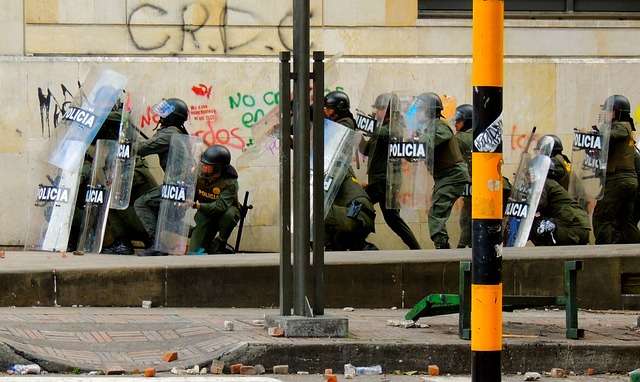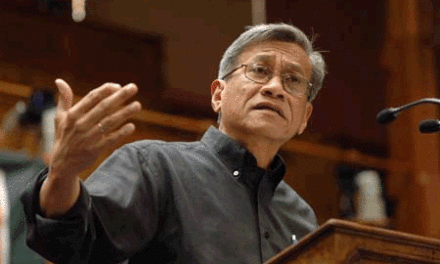12th December: There was a short meeting of the Core Group on services on the 12th attended by 8 delegations. (The Core Group comprises of 15 countries in total – US, EU, Japan and Canda, Australia, Brazil, Egypt, Malaysia, Argentina, Chile, Singapore, China, Korea, Mexico and India.) At the meeting, the group discussed the language on services:
Paras 19 – 21 of the main draft text, and Annex C (Annex C of the draft text includes prescriptive language that would allow the US and EC to commence sectoral negotiations post-Hong Kong).
Paras 19 – 21 of the main draft text, and Annex C (Annex C of the draft text includes prescriptive language that would allow the US and EC to commence sectoral negotiations post-Hong Kong).
It was clear from the meeting that the EC has a two step strategy in terms of putting in language on services which goes beyond the current request/ offer approach. EC complained that they were not getting anything in the current language, and that they would like the language strengthened in the following areas:
1. Better language for EC in paras 19-21 of the Main draft text;
2. Strengthened language in para 1c of Annex C on Mode 3 (commercial presence)
3. A clear definition of what plurilateral negotiations are in para 7
There was opposition to their suggestion from Brazil and Malaysia. Finally, EC said that they could make a major concession and live with the text and harvest nothing, but only if there was a door open in the text for them to come back with much more prescriptive language on how the negotiations they want will be organised (i.e. plurilaterals/sectorals).
They also said that they want detailed language at the same time that they agree to full modalities in agriculture.
US said that they have been talking to delegations that are opposing alternative language in Annex C and trying to convince them that all their concerns are taken into account in the current version of Annex C, so there is no need for amendment.
2. Strengthened language in para 1c of Annex C on Mode 3 (commercial presence)
3. A clear definition of what plurilateral negotiations are in para 7
There was opposition to their suggestion from Brazil and Malaysia. Finally, EC said that they could make a major concession and live with the text and harvest nothing, but only if there was a door open in the text for them to come back with much more prescriptive language on how the negotiations they want will be organised (i.e. plurilaterals/sectorals).
They also said that they want detailed language at the same time that they agree to full modalities in agriculture.
US said that they have been talking to delegations that are opposing alternative language in Annex C and trying to convince them that all their concerns are taken into account in the current version of Annex C, so there is no need for amendment.
13th December
It became very apparent today that the services issue will be hidden in the closet for another couple of days, the plan being to appease the G90 with a “development package” before bringing out the most controversial issue on to the table.
It became very apparent today that the services issue will be hidden in the closet for another couple of days, the plan being to appease the G90 with a “development package” before bringing out the most controversial issue on to the table.
The core group on services will meet at ministerial level, only on the 15th, instead of the 14th as earlier planned. Lamy and other developed countries are conveying the message that the main areas of negotiations in this Ministerial are NAMA, Agriculture and Development. Currently, there are no consultations being held on services organized by the facilitator, even though Annex C was most controversial on the 2nd December General Council.
Many bilateral and group meetings were held today eg. the AU, ACP and G90. A Green Room meeting will also be held tonight at 10.30pm, focusing on various issues but especially on the “development package”. A group of 26 countries will be part of the Green Room. The negotiations are most likely to be driven by the G4 +2 i.e. US, EU, India, Brazil, Japan and Australia.
Following the plenary opening, the first open session of negotiations today was on NAMA. Seperately, a group of developing countries have also met on the need for “flexibilities” in the NAMA negotiations. This grouping includes Philippines, Indonesia, Venezuela, India, South Africa, Brazil and Namibia among others. These are countries that have to implement the NAMA formula or “para 8 countries” (Para 8 of the July Framework talks about providing a certain % of tariff lines to be excluded from the application of the NAMA formula. US and EU in Geneva have argued that these flexibilities have to be linked to the formula – i.e. a steep formula will result of more flexibilities than a less ambitious formula). This “core group” position is that they would like expanded flexibilities and that these should be delinked from the formula.
Unlike other Ministerials, things are unusually quiet on the agriculture front. No offers have been forthcoming and nothing is moving. The G33 met today at Ministerial level and issued a communiqué on the Special Products (SP) and Special Safeguard Mechanism (SSM), underlining their importance:
“Ministers expressed their disappointment that the provisions on SP and SSM, which the group is asking for, have not been favoured with meaningful responses in these negotiations…
Ministers stressed that there must be a minimum package with a high degree of specificity on Special and Differential Treatment. For SP there must be agreement that any developing country Member shall have the right to self-designate at least 20% of tariff lines as SPs…”
The G33 also worked on stronger alternative language on SP and SSM for the draft Ministerial text. They would like any text on SP and SSM to have the same level of detail as the other market access issues in agriculture eg. on the bands and formula.
On services, the G90 is meeting and are likely to take a decision to table their alternative text for Annex C which had already been agreed upon by the ACP group in Geneva at expert level. If they put this forward, ASEAN and other countries have indicated that they will co-sponsor the paper.








